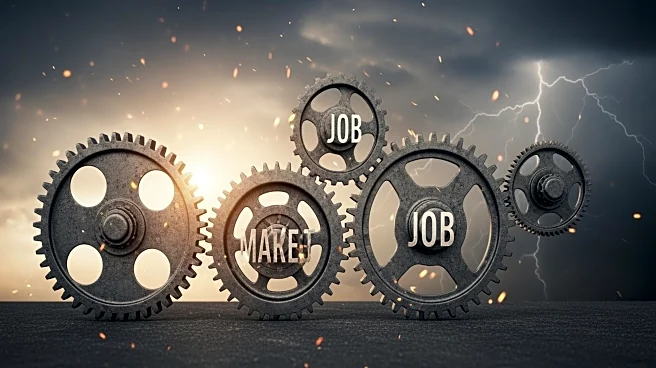What's Happening?
The U.S. job market is experiencing a slowdown, with most industries either flat or shrinking, according to the latest Bureau of Labor Statistics report. Employers added only 22,000 jobs in August, indicating
cooling labor market conditions. Federal Reserve Chair Jerome Powell highlighted significant downside risks in the labor market, while inflation remains above the Fed's target. The ongoing government shutdown has delayed key public jobs data, adding to economic uncertainties.
Why It's Important?
The cooling job market poses challenges for job seekers and economic stability. With 21 states and D.C. reportedly in a recession, companies are halting hiring and exploring alternatives to layoffs. The delayed public jobs data due to the government shutdown further complicates economic planning and decision-making. The situation underscores the need for strategic economic policies to address labor market challenges and support growth.
What's Next?
As the job market continues to face challenges, policymakers may need to implement measures to stimulate economic growth and support employment. The Federal Reserve's actions and government policies will play a crucial role in addressing inflation and labor market risks. The resolution of the government shutdown could provide clarity on public jobs data, aiding in economic planning and recovery efforts.












